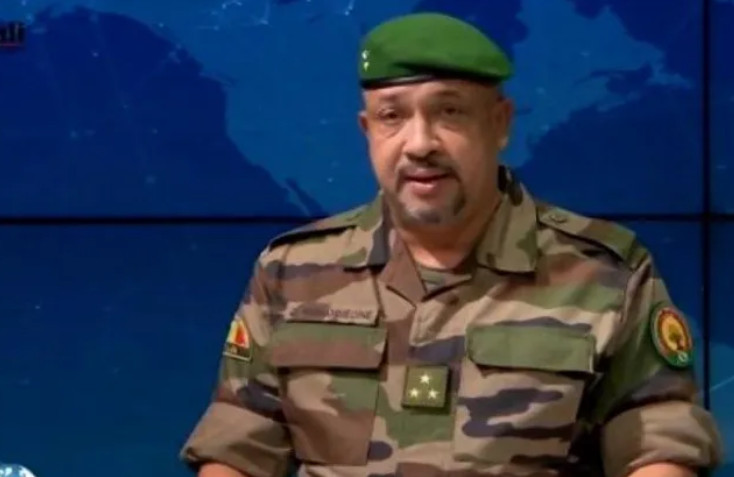In a dramatic escalation of tensions, Mali’s military government announced the arrest of several individuals, including two high-ranking generals and a French national, accused of attempting to destabilize the country. This development has sent shock-waves through the region, raising questions about foreign influence, internal dissent, and the future of Mali’s political landscape.

Image source: BBC
The Arrests: Who’s Involved?
1. General Abass Dembélé: A former governor of the central Mopti region, General Dembélé was dismissed in May after calling for an investigation into allegations that the Malian army killed civilians in the village of Diafarabé. His arrest underscores the junta’s intolerance for dissent within its ranks.
2. General Néma Sagara: Known for her role in fighting militants in 2012, General Sagara’s arrest has raised eyebrows. Her detention suggests that the junta is targeting individuals with significant military experience who may pose a threat to its authority.
3. Yann Vezilier: A French national identified as a suspected French intelligence agent, Vezilier’s arrest has further strained relations between Mali and France. The Malian government alleges that he collaborated with political, civil, and military actors to destabilize the country. France has denied these allegations, calling them “unfounded” and a violation of the Vienna Convention on Diplomatic Relations.
Who is Yann Vezilier?
Yann Vezilier, a French national, has become a pivotal figure in the recent political turmoil in Mali. Arrested by Mali’s military junta on August 15, 2025, Vezilier stands accused of orchestrating a covert operation aimed at destabilizing the Malian government. The junta alleges that he acted on behalf of French intelligence services, collaborating with various political, civil society, and military actors to undermine the nation’s institutions.
In response, France has firmly denied these allegations, asserting that Vezilier was an accredited member of its embassy in Bamako and that the charges against him are “unfounded.” The French Foreign Ministry further emphasized that his arrest violates the Vienna Convention on Diplomatic Relations, which safeguards the rights of diplomatic personnel.
The controversy surrounding Vezilier’s arrest has intensified diplomatic tensions between Mali and France, both of which have experienced a strained relationship in recent years. This incident underscores the complexities of international relations in West Africa, where geopolitical interests often intersect with national sovereignty and security concerns.
As the situation unfolds, the international community watches closely, recognizing that the resolution of this case could have far-reaching implications for diplomatic norms and the balance of power in the region.
The Alleged Coup Plot
According to Mali’s security minister, General Daoud Aly Mohammedine, the arrests were part of an operation to thwart a coup plot that began on August 1. The alleged conspirators aimed to destabilize the country’s institutions. The involvement of a foreign national in this plot raises concerns about external interference in Mali’s internal affairs.
France’s Response
France has strongly denied the allegations, stating that Vezilier was an embassy employee and that the charges against him were baseless. The French government views the arrest as a violation of diplomatic norms and has called for his immediate release. This diplomatic rift highlights the fragile relationship between Mali and its former colonial power.
Internal Dynamics in Mali
The arrests come amid growing discontent within Mali. In May, a pro-democracy rally marked the first significant public opposition since the military seized power nearly four years ago. The junta’s decision in June to extend its rule by five years after dissolving political parties has further fueled public dissatisfaction. Analysts suggest that the arrests may be more about silencing dissent than addressing a legitimate coup threat.
Implications for Mali and the Region
The unfolding events in Mali have significant implications for the country and the broader West African region. The involvement of a foreign national in an alleged coup plot raises questions about the extent of external influence in Mali’s political affairs. Additionally, the junta’s crackdown on dissent signals a shift towards authoritarian rule, potentially undermining efforts toward democratic governance in the region.
Conclusion
The recent arrests in Mali have intensified the political crisis in the country. As the situation develops, it will be crucial to monitor the responses from both domestic and international actors. The outcome of this crisis could shape the future of Mali’s political landscape and its relations with neighboring countries and the international community.
Sources: Al Jazeera, APNEWS , Reuters
What you Missed on Media Wall